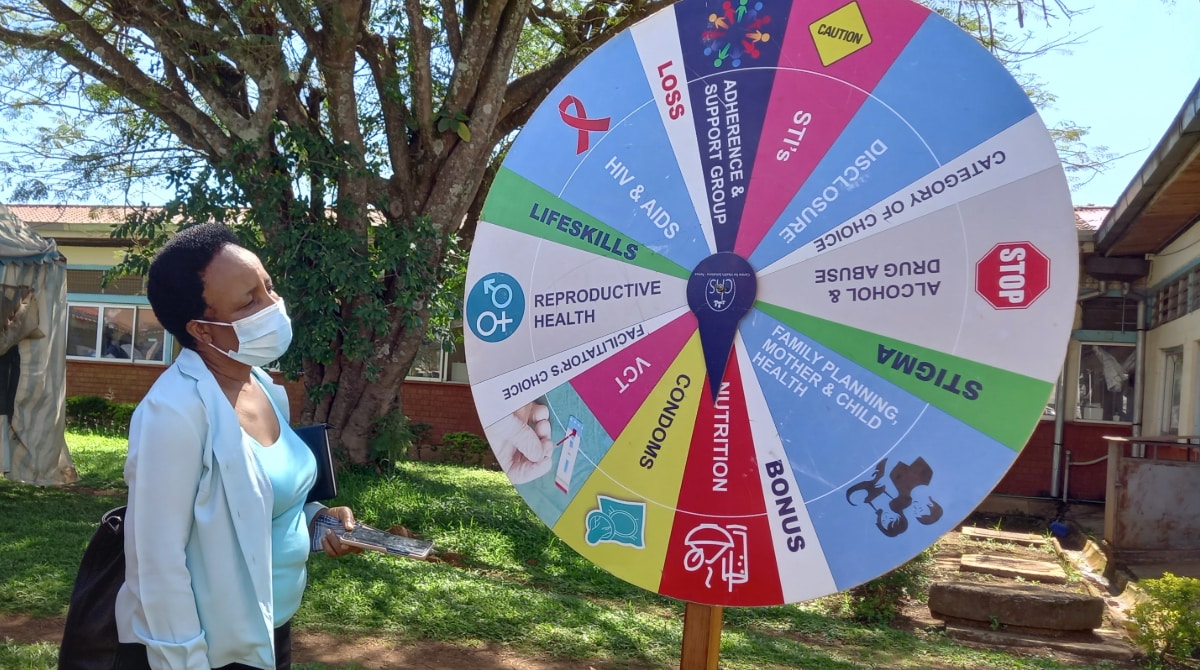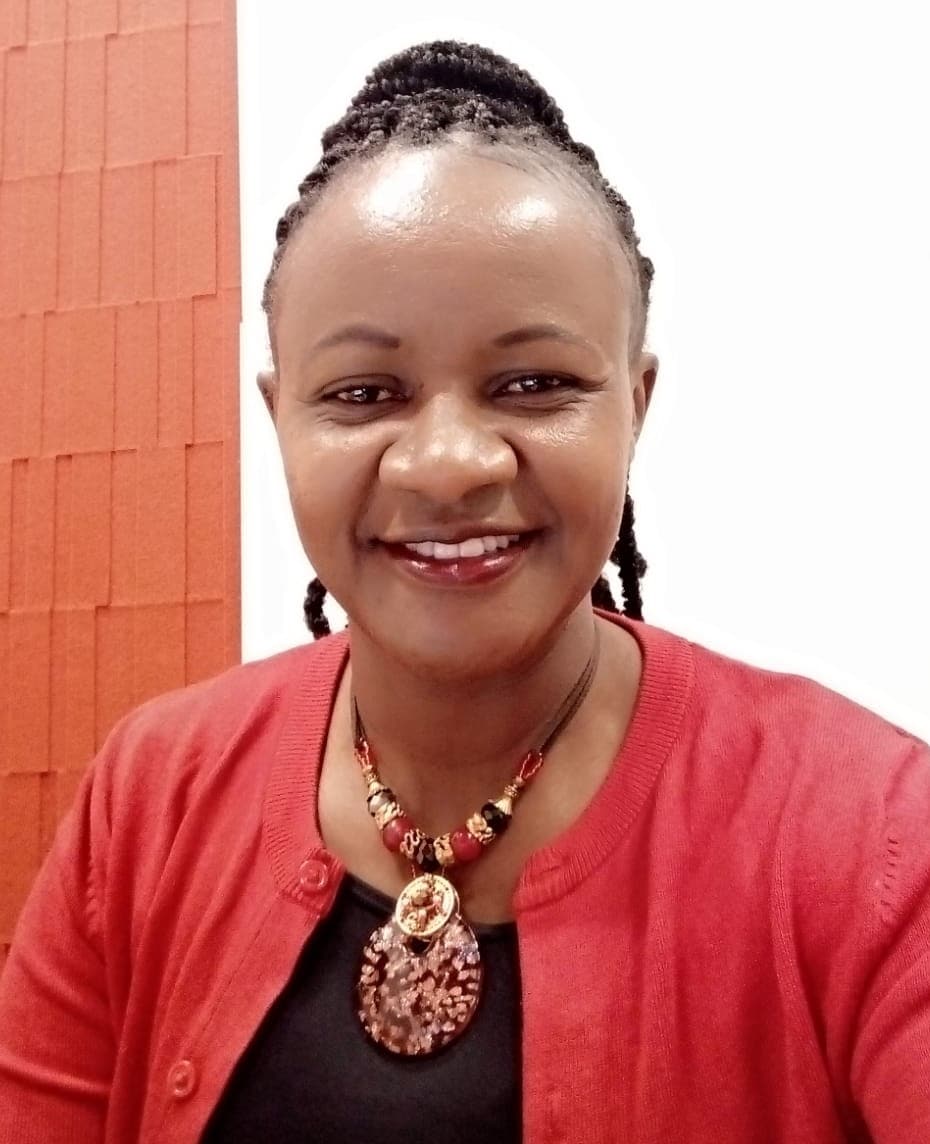At a glance
- Operation Triple Zero (OTZ) is a low-cost, high impact program for young people living with HIV.
- Started by CDC's Dr. Immaculate Mutisya, OTZ has expanded from a single clinic in Kenya to 10 countries – and growing.
- OTZ has a profound impact on teens' current lives, what their adult lives will be, and the lives of their future children.

A moment sparks a movement
In the days before Dr. Immaculate Mutisya joined CDC's Kenya office in 2014, a radical idea brewed in her mind. What could happen if we gave young people real power in their HIV care and treatment?
The idea first blossomed at a clinic where Immaculate noticed a pregnant 20-year-old woman suffering symptoms of advanced HIV disease. Her life and the life of her unborn baby were at risk.
Immaculate reached out to the young woman. "You have the power," she told her. "If you do not miss your drugs, your viral load will be zero. The risk of passing the virus to your unborn baby will be extremely low. I will walk with you, but you have the power to take charge."
It was a simple message, and it worked.
Twelve weeks later, the excited young woman called Immaculate. She was down from 20 million copies of HIV virus to zero. She went on to give birth to an HIV-free baby boy.
Immaculate realized how many others could benefit from this message of empowerment. But with more than 1000 young people becoming infected with HIV globally every day, the crisis was billowing.
I can't talk to everyone, Immaculate thought. I have to start a movement.
Igniting a flame by empowering youth
As a pediatrician and public health specialist, Immaculate knew adolescents had to be part of the solution. Young people have inner strengths they can use to take control of their health and, ultimately, their lives. As Immaculate says, "adolescents are not a problem to be fixed, but a potential to be nurtured."
She decided the best way to harness this potential was with an "asset-based" approach. In this approach, the people who will benefit from a program help design it. She started small, with just a few young people.
Together, they landed on three achievable goals:
- zero viral load
- zero missed appointments; and
- zero missed drugs
And Operation Triple Zero (OTZ) was born.
OTZ is led by youth, for youth. Older members mentor younger or newer ones. OTZ also nurtures self-leadership, which boils down to "my life, my treatment, my choice." Members learn about antiretroviral medicines and become active participants in their own health journey. Online chat groups and in-person clubs provide the connection adolescents need. At clinics, OTZ empowers teens to use wait times to spread positivity through drawing, dance, crafts, and spoken word poetry.
In fact, the teens themselves developed OTZ's official motto: "Zeros for Heroes, and Heroes for Zeros." They even wrote a song about it.
OTZ spreads like wildfire across the globe
In OTZ's first clinic, Immaculate discovered viral load suppression had increased by 30% among OTZ members, compared to 3% for non-members. This made her more determined than ever to expand OTZ.
She says joining CDC Kenya was the true springboard. "My position at CDC gave me training and a platform. I learned to build a strong case for a public health problem, then design, implement, monitor, and scale up."

From there, OTZ took off. By 2018, all CDC implementing partners in Kenya had adopted OTZ. Clinics run by other U.S. Government agencies also came on board. Teams from other countries began traveling to Kenya to learn how to implement the program. In 2019, the World Health Organization cited OTZ as a best practice for adolescent programming.
OTZ now thrives in 10 countries, with more than 1,000 clinics serving over 100,000 young people living with HIV. In 2024, the U.S. President's Emergency Plan for AIDS Relief (PEPFAR) announced a $20 million initiative to strengthen youth-focused HIV programming. As these efforts take flight, OTZ provides a foundation.
Lighting the way to an HIV-free generation
OTZ continues to prove its effectiveness. As of June 2024, all adolescents and youth have reached 94% viral load suppression in all CDC-supported sites in Kenya.
OTZ demonstrates how investing in young people yields a "triple dividend." It impacts their present life, the life of the adults they will become, and the lives of their children. Immaculate remains hopeful that this could be the start of an HIV-free generation.
Immaculate has spoken about OTZ at national and international forums. She even traveled to Detroit, Michigan, to receive a global award for adolescent programming. But when asked what she's most proud of, she doesn't hesitate.
I am proud to have touched the lives of thousands of young people and families I may never know. I am happy to see young people living with HIV not just surviving but thriving.
- Dr. Immaculate Mutisya
Resources
Discover more about how OTZ is impacting the world:
Acknowledgments: "Thank you to the Ministry of Health Kenya through the National Syndemic Disease Control Council, the National AIDS and STI Control Program, CDC Kenya colleagues, leadership, and CDC HQ for all the support to make OTZ a great success. And special appreciation to all adolescents and youth who have harnessed their assets and strengths to champion for and improve their health." - Dr. Mutisya
